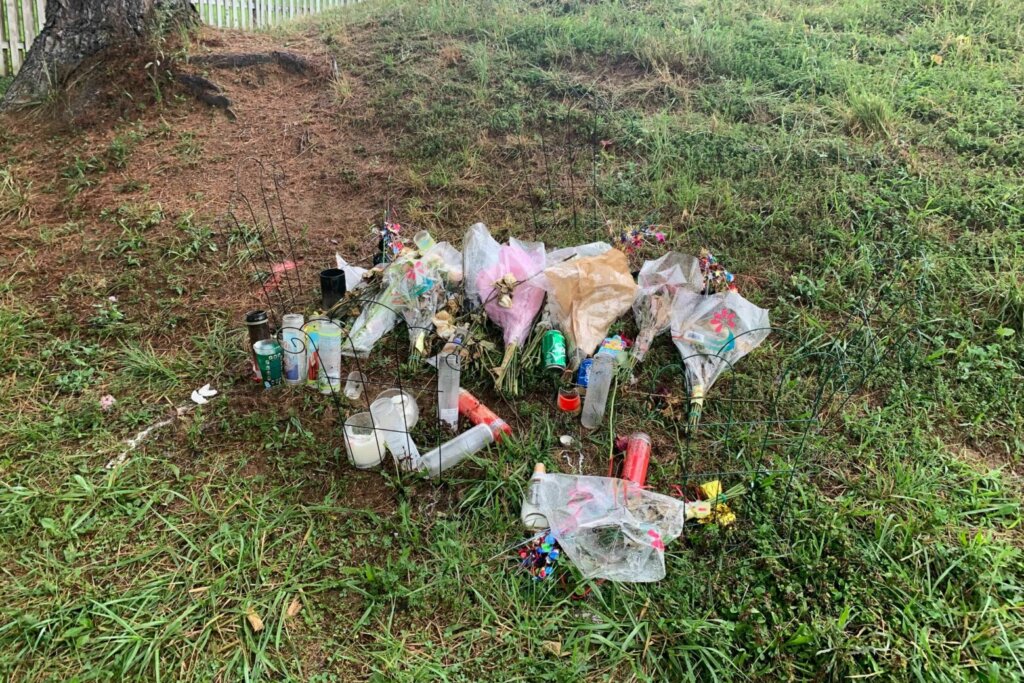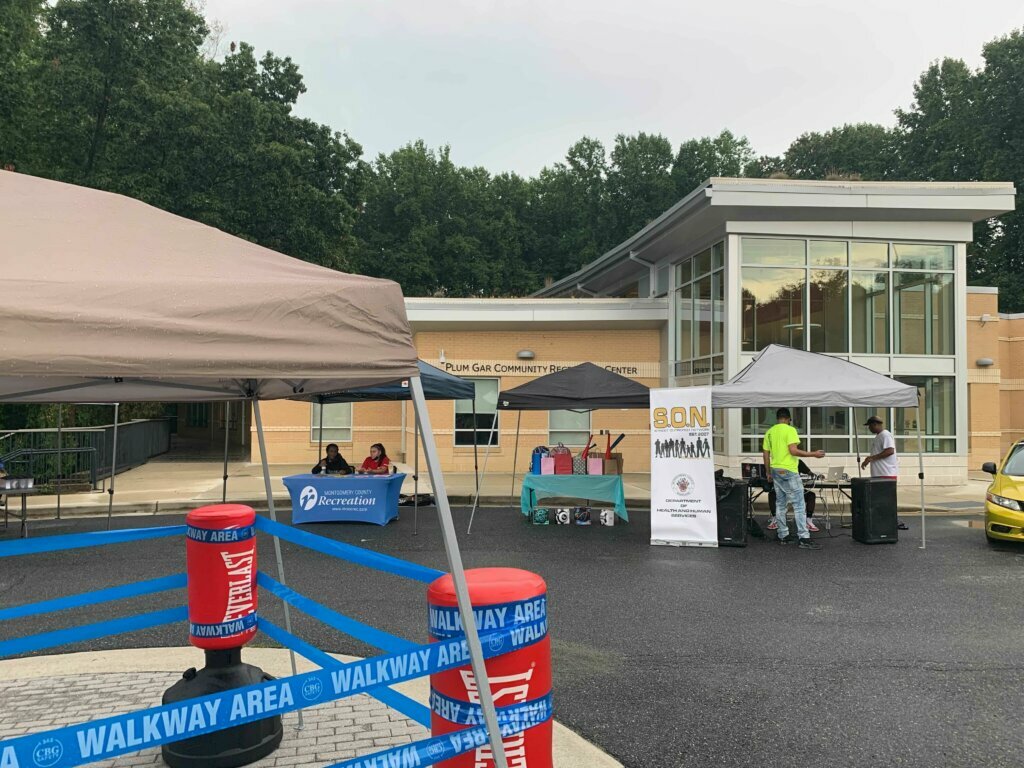
At a community gathering promoting peace on Friday, a makeshift memorial stood near the side of the basketball courts at the Plum Gar Community Recreation Center in Germantown, Maryland. The memorial marks the spot where 20-year-old Axel Trejos became the first person in Montgomery County to be killed with a so-called “ghost gun,” according to police.
Adding to the troubling aspect of the Aug. 18 shooting is that the person accused of firing that ghost gun, which also injured three minors, is only 14 years old.
“The tragedy that took place here in some measure was a reflection that a ghost gun was made available in some fashion to a 14-year-old boy,” Montgomery County State’s Attorney John McCarthy said.

McCarthy was joined at the site by Montgomery County Council Vice President Gabe Albornoz, who said that as the community comes together to heal, it must also work to prevent similar tragedies in the future.
“It breaks my heart that on the hallowed grounds of this facility that was built for our community, we had the loss of life, tragically,” Albornoz said.
The two elected leaders called for tougher laws to be established at every level of government to regulate the ghost guns, which can be 3D-printed or sold in kits that can be assembled in homes. The weapons don’t have serial numbers — which law enforcement uses to trace guns used in crimes — and do not fall under the same regulations that apply to the sale or transfer of ownership of other firearms.
In Montgomery County, a law passed earlier this year bars the sale of ghost guns to a minor and bars the manufacturing of a ghost gun in the presence of a minor. It also makes it illegal to sell, transfer ownership, possess or manufacture one of the firearms “within 100 yards of a place of public assembly.”
While he praised the county’s law, McCarthy said there is only so far a local law can go, and that to get more teeth into the regulation of these weapons, the state will need to act.
“All the things that people have worked for for years to do, to make sure we monitored who had access to handguns goes out the window if you don’t begin to regulate, in some intelligent fashion, ghost guns,” McCarthy said.
Albornoz and McCarthy expressed support for a bill introduced in Annapolis by Democratic state Sen. Susan Lee, who represents Montgomery County, that would prohibit the sale or transfer of ownership of a gun that doesn’t have a serial number. Untraceable firearms would also only be allowed to be sold to a buyer who has a handgun license issued by state police.
As some push for tougher laws on the weapons, some gun-rights supporters have been critical of measures targeting ghost guns. For example, Montgomery County’s law is currently being challenged in court by a gun-rights advocacy group called Maryland Shall Issue. It claims the law “unlawfully exceeded its powers and jurisdiction to criminally regulate the possession and transfer of lawfully owned firearms” in a way that is incompatible with the Maryland state constitution and other state law.








